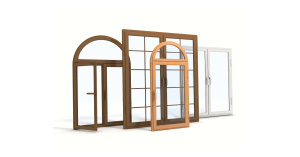Window and door manufacturers agree that beauty and ease of maintenance are two of the most important factors for homeowners to consider when looking for new installations and replacements, along with energy efficiency. All materials offer these attributes to a certain degree, but most homeowners choose uPVC because the material is waterproof and requires little maintenance. Because uPVC is easy to clean, it is easy to keep dust, grime, and debris from building up and interfering with the function and durability of your doors and windows.
Things to Do
- Open the doors and windows and vacuum the vents to remove loose dirt and grime. Consider adding a brush nozzle to your vacuum to avoid scratching the uPVC.
- Alternatively, use a dry sponge to wipe all areas of your windows and doors, trying to remove as much dirt as possible.
- Wet the sponge with warm soapy water and run it around your uPVC doors and windows again.
- Apply uPVC cleaner using a damp cloth and wipe your doors and windows gently. Choose a uPVC specific cleaner to avoid substances that might remove the shiny finish permanently.
- You can prepare a homemade uPVC cleaner by mixing one part white vinegar with two parts washing liquid. Use it the same way as a commercial cleaner.
- Finish by buffing the doors and windows with a dry cloth or a newspaper. It won’t scratch the surface.
Note: To avoid scratching your doors and windows, never use a wet cloth to clean the uPVC after using a cleaner.
Things to Avoid
Avoid the following chemicals and cleaning tools as they can scratch, remove, or erode the finish permanently.
- Nail polish remover
- Methylated spirits
- White spirits
- Bleach
- WD-40
- Iron wool
- Scrubbing pads
Additional Maintenance
Cleaning your uPVC doors and windows is a rather simple process, and you don’t even need to invest in any special tools or supplies. To enjoy your doors even more, there are a few other things that you can do.
- Lubricate all stainless steel moving parts, such as hinges and opening and closing mechanisms, twice a year, using a light silicone lubricant. Other metal moving parts can be coated with a film of petroleum jelly. Be sure not to use spray oil or excessive lubrication. Also, don’t lubricate cylinders and wheels on your doors and windows.
- Open your windows every day for a short period to reduce the risk of condensation.
- Powder the seals with talc to maintain flexibility in the gaskets.
Last but certainly not least, be sure to only use the recommended supplies for cleaning your uPVC windows, so that you don’t damage their finish, and they maintain their new, attractive look for as long as possible.

